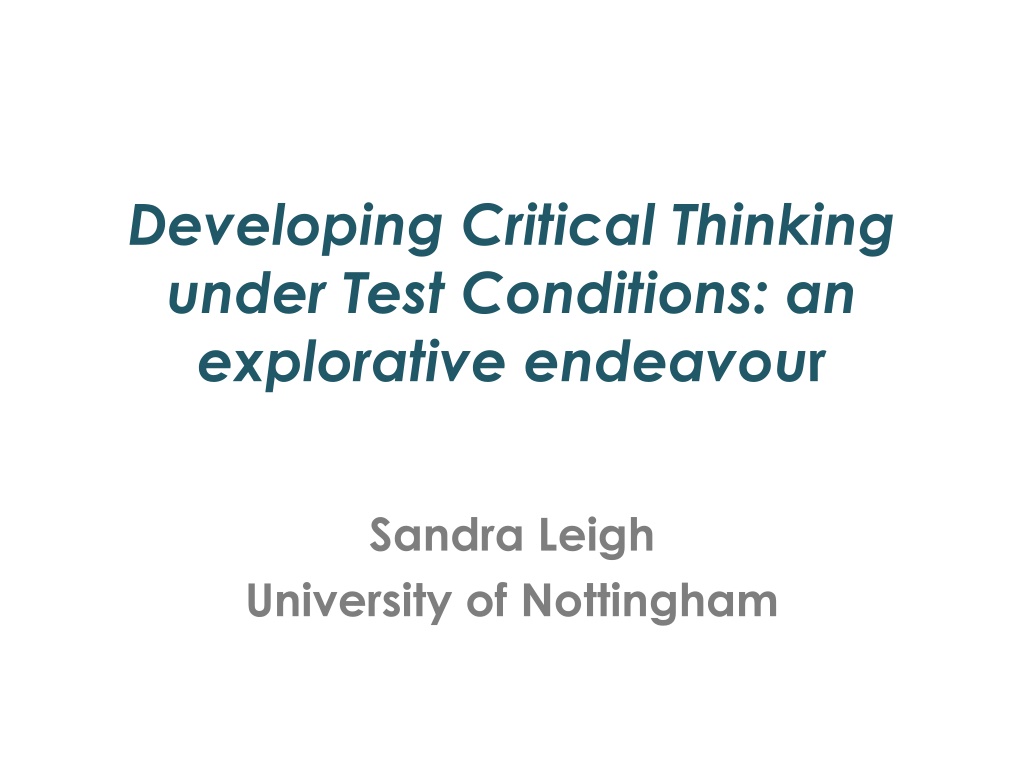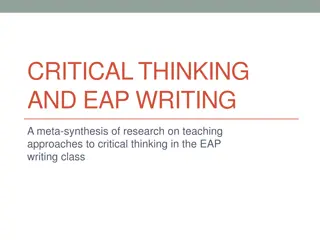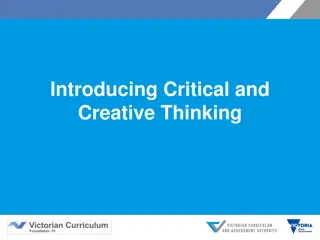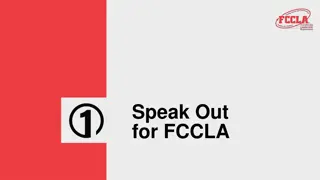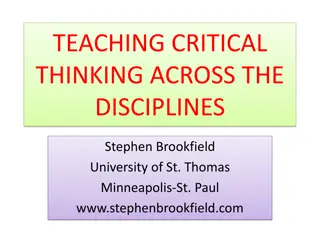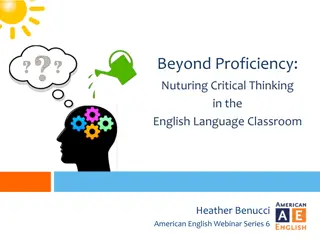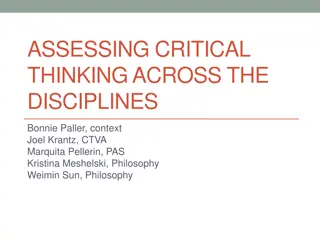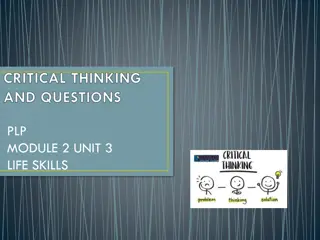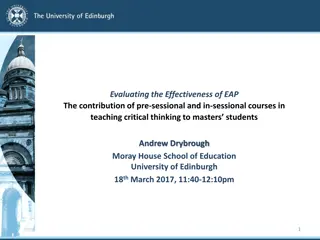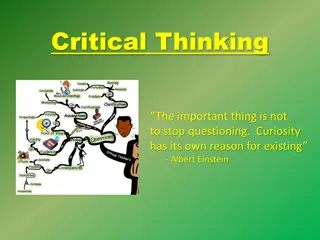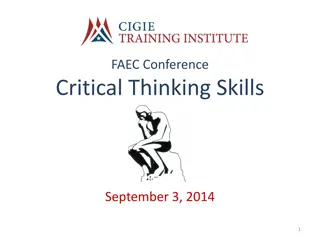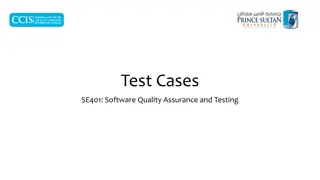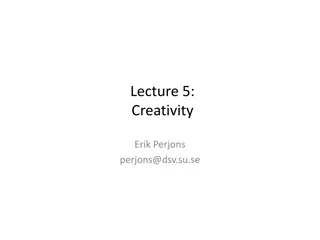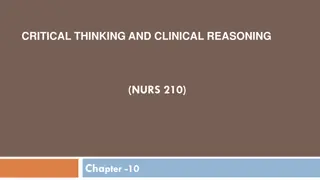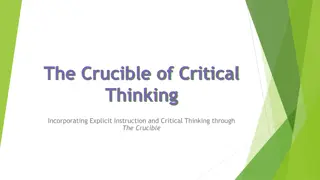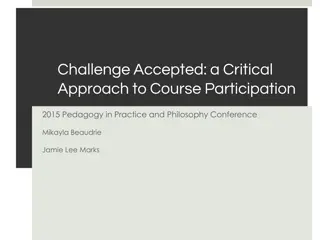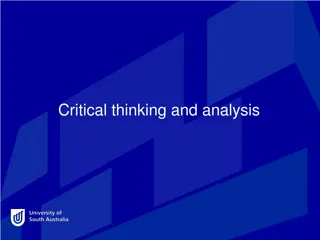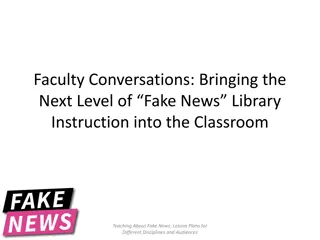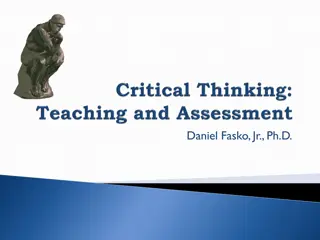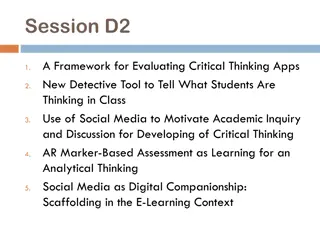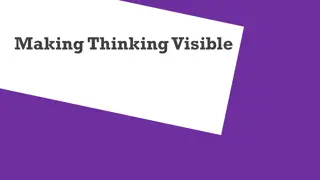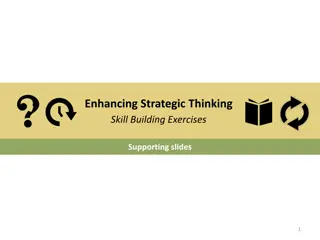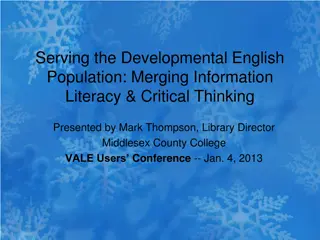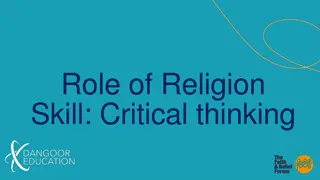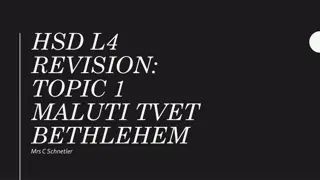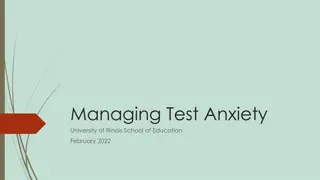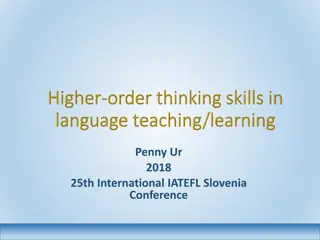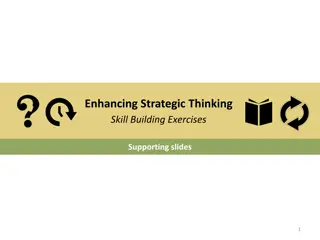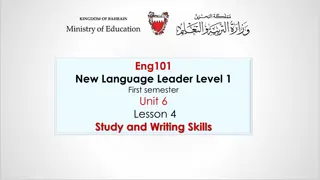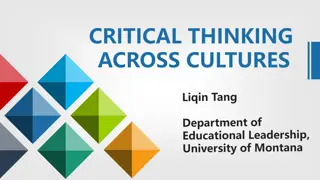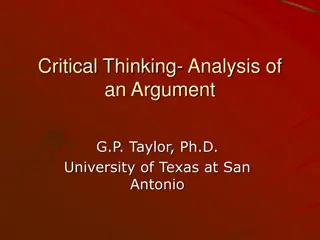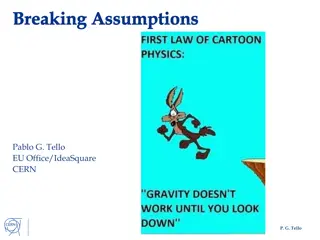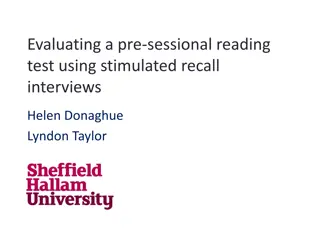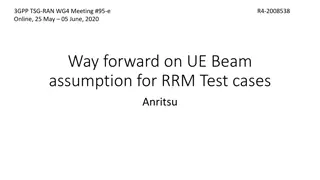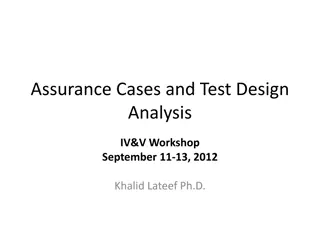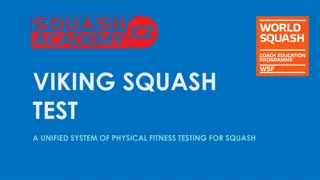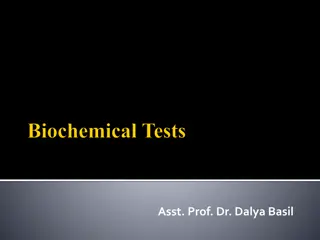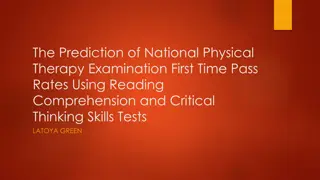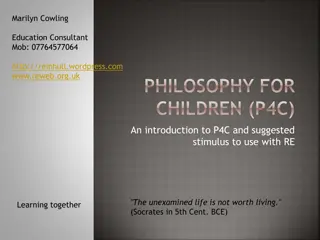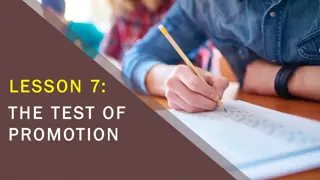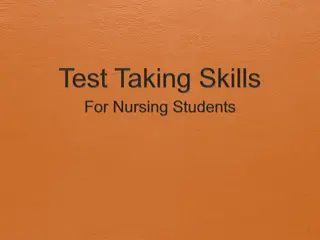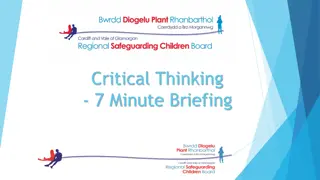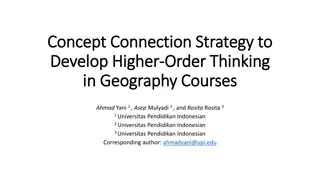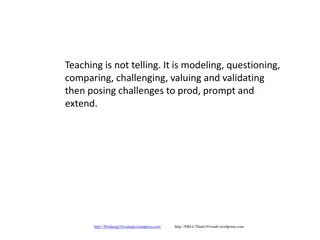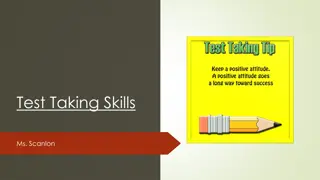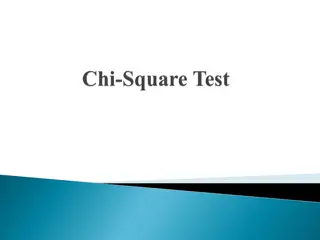Enhancing Critical Thinking in Test Conditions: Challenges and Strategies
This exploration delves into developing critical thinking skills under test conditions, focusing on challenges, strengths, and future directions. It discusses the purpose of tests, challenges faced, criteria for assignments, and learner outcomes, emphasizing the importance of cognitive skills and engaging processes in assessments.
Download Presentation

Please find below an Image/Link to download the presentation.
The content on the website is provided AS IS for your information and personal use only. It may not be sold, licensed, or shared on other websites without obtaining consent from the author. Download presentation by click this link. If you encounter any issues during the download, it is possible that the publisher has removed the file from their server.
E N D
Presentation Transcript
Developing Critical Thinking under Test Conditions: an explorative endeavour Sandra Leigh University of Nottingham
Freires Concept of Education Banking versus liberating education
Outline Introduction Challenges Validity & Strengths Limitations and future developments/directions Questions
Introduction Foundation Programme and CT module CT learning outcomes: understanding argumentation and reasoning analytical and critical thinking, developing confidence
Test Purpose how students position themselves in a controversy how they present valid arguments their abilities to note fallacious reasoning and to understand abstract concepts, bias, statistics
Challenges (Abstract and diverging) process versus (tangible & convergent)product Content versus thinking skills Selecting the right topics Students different abilities
The Test 1stsection: 10 questions 2ndsection: 15 questions; multiple tasks 3rdsection: 1 question from 3 choices
Validity Criteria for CT assignments: http://www.criticalthinking.org/pages/critical- thinking-testing-and-assessment/594 Learning Outcomes of FP
Four Criteria for CT assignments Address fundamental & powerful concepts Appropriate (range) of cognitive skills Reasoned questions/judgements within conflicting or complex issues Intellectual standards: FP learner outcomes
Learner Outcomes knowledge and understanding intellectual skills transferable skills
Strengths Variety of cognitive skills + Engaging and continuous process = Learning under assessment conditions
Limitations Time and Topics Materials, cultural bias & language advantage Subjective marking: sections 2 and 3
Future Developments Assessment: exam and coursework; SEM 1 and 2 Include more global perspectives Provide more clarifications
References Freire, P. (2004). Pedagogy of Hope. London: Continuum. Paul, R. and Elder, L. (2007) Consequential Validity: using assessment to drive instruction. Available at http://www.criticalthinking.org/files/White%20Pap erAssessmentSept2007.pdf Wolfe, C. (nd) Criteria for Critical Thinking Assignments. Available at http://www.criticalthinking.org/pages/critical- thinking-testing-and-assessment/594
